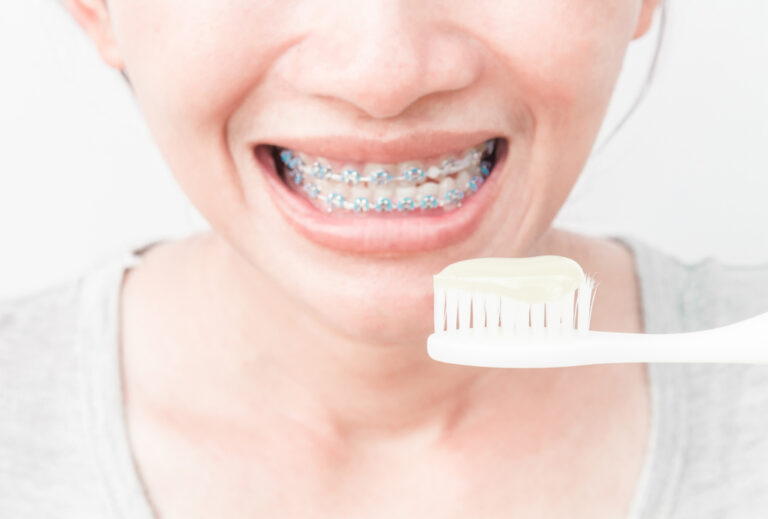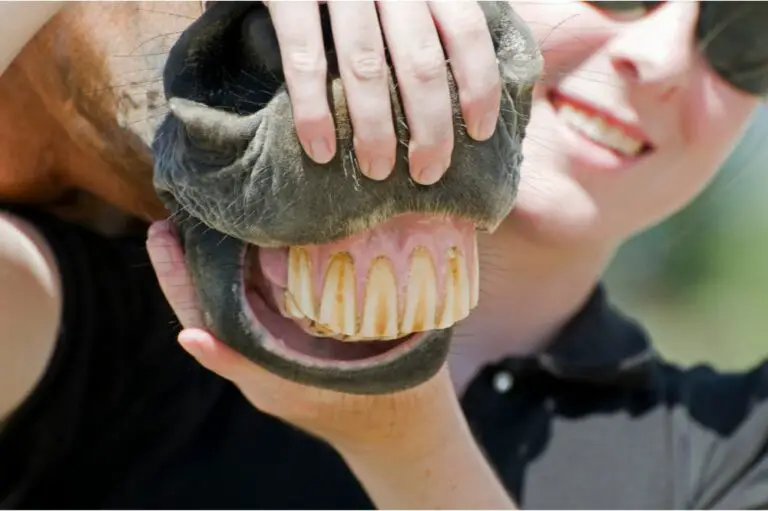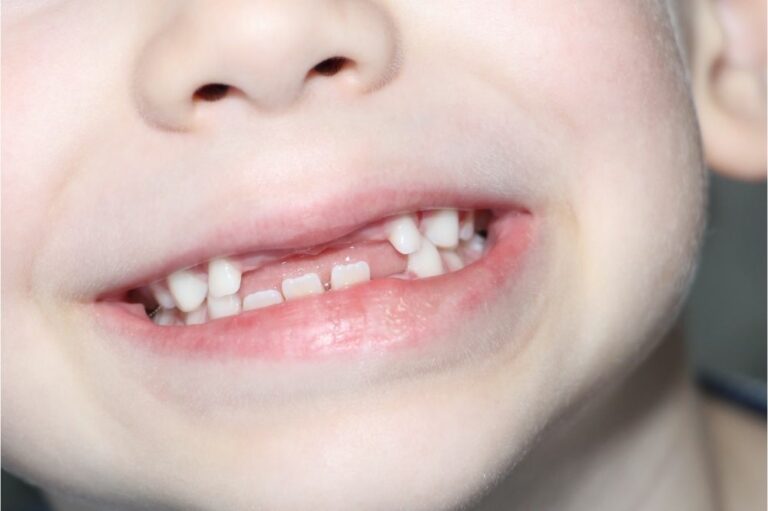Do you know that your oral health can be affected by an iron deficiency? Iron is an essential nutrient that helps your body produce hemoglobin, a protein that carries oxygen in your blood. When you don’t have enough iron in your body, it can lead to a condition called anemia. Anemia can cause a range of symptoms, including fatigue, weakness, and shortness of breath. But did you know that it can also affect your teeth?
Iron deficiency anemia can cause teeth discoloration. Your teeth may become yellow, brown, or even greenish in color. This happens because iron is essential for the development and maintenance of tooth enamel. Enamel is the hard, outer layer of your teeth that protects them from decay and damage. When your body doesn’t have enough iron, your enamel can become thin and weak, making your teeth more susceptible to discoloration and decay.
If you have an iron deficiency, it’s important to speak to your doctor about treatment options. In addition to taking iron supplements, you can also take steps to improve your oral health. Brush your teeth twice a day with fluoride toothpaste, floss daily, and visit your dentist regularly for cleanings and checkups. By taking care of your teeth and addressing any underlying health issues, you can keep your smile healthy and bright.
Understanding Iron Deficiency
Iron deficiency is a common condition that occurs when your body does not have enough iron. Iron is an essential mineral that is required for the production of hemoglobin, a protein found in red blood cells that carries oxygen throughout your body. When you don’t have enough iron, your body cannot produce enough hemoglobin, which can lead to anemia.
Anemia is a condition in which your blood lacks adequate healthy red blood cells. Iron deficiency anemia is the most common type of anemia and is caused by insufficient iron levels in the body. Iron is also necessary for the proper functioning of many enzymes and other proteins in the body.
Iron deficiency can occur for several reasons, including inadequate dietary intake of iron, poor absorption of iron from the diet, and increased iron loss due to bleeding or pregnancy. People who follow a vegetarian or vegan diet may be at a higher risk of iron deficiency because the iron found in plant foods is less easily absorbed by the body than the iron found in animal foods.
Symptoms of iron deficiency can include fatigue, weakness, pale skin, shortness of breath, dizziness, headaches, and cold hands and feet. In more severe cases, iron deficiency can also cause hair loss, brittle nails, and a swollen tongue.
It is important to diagnose and treat iron deficiency early to prevent complications such as anemia and to restore healthy iron levels in the body. Treatment typically involves iron supplements and changes to the diet to include more iron-rich foods. In some cases, underlying medical conditions that may be causing iron deficiency may need to be addressed as well.
Teeth Discoloration: An Overview
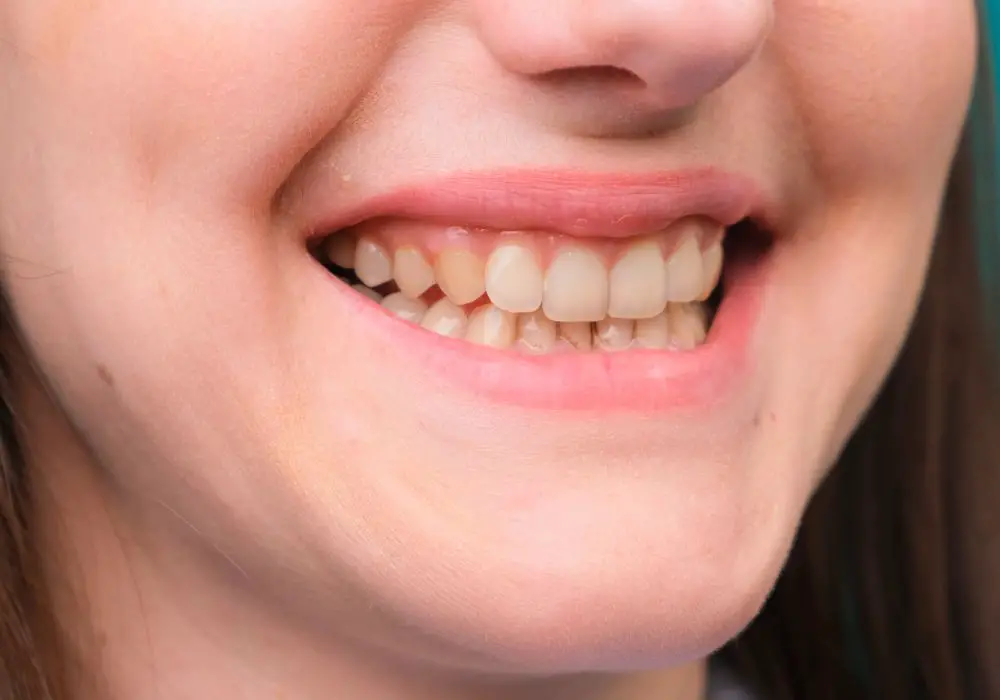
Teeth discoloration is a common dental problem that affects people of all ages. It refers to the staining or darkening of teeth, which can be caused by a number of factors. Some of the most common causes of teeth discoloration include aging, genetics, poor dental hygiene, and certain medications.
There are two main types of teeth discoloration: extrinsic and intrinsic. Extrinsic discoloration occurs when the outer layer of the tooth (enamel) is stained by external factors such as smoking, coffee, tea, or red wine. Intrinsic discoloration, on the other hand, occurs when the inner structure of the tooth (dentin) becomes discolored or darkened. This type of discoloration can be caused by a variety of factors, including trauma, disease, and certain medications.
Teeth discoloration can range from mild to severe, and it can have a significant impact on your self-confidence and overall oral health. While some causes of teeth discoloration are unavoidable, there are steps you can take to prevent or reduce the severity of discoloration. These include practicing good oral hygiene, avoiding foods and drinks that stain your teeth, and visiting your dentist regularly for cleanings and checkups.
In some cases, teeth discoloration may be a symptom of an underlying health condition, such as anemia or kidney disease. If you notice any changes in the color or appearance of your teeth, it’s important to talk to your dentist or healthcare provider to determine the underlying cause and develop an appropriate treatment plan.
The Connection Between Iron Deficiency and Teeth Discoloration
If you have noticed that your teeth have become discolored, it could be due to a variety of reasons. One possible cause is iron deficiency anemia. Iron is an essential mineral that is needed for the production of hemoglobin, a protein that carries oxygen in your blood. When your body doesn’t have enough iron, it can’t produce enough hemoglobin, which can lead to anemia.
Iron deficiency anemia can cause several oral health problems, including teeth discoloration. When your body doesn’t have enough iron, it can affect the development and mineralization of your teeth, leading to a brownish or yellowish discoloration. This discoloration is often seen on the tips or edges of the teeth.
In addition to teeth discoloration, iron deficiency anemia can also cause other oral health problems, such as:
- Tongue inflammation
- Dry mouth
- Mouth sores
- Cracks at the corners of the mouth
If you suspect that your teeth discoloration is due to iron deficiency anemia, it’s important to speak with your doctor. They can perform a blood test to determine if you have anemia and recommend treatment options.
Treatment for iron deficiency anemia typically involves taking iron supplements and making dietary changes to increase your intake of iron-rich foods. It’s important to follow your doctor’s recommendations and take your iron supplements as directed to help improve your oral health and overall well-being.
In summary, iron deficiency anemia can cause teeth discoloration and other oral health problems. If you suspect that your teeth discoloration is due to anemia, speak with your doctor to determine the best course of treatment.
Symptoms of Iron Deficiency Related Teeth Discoloration
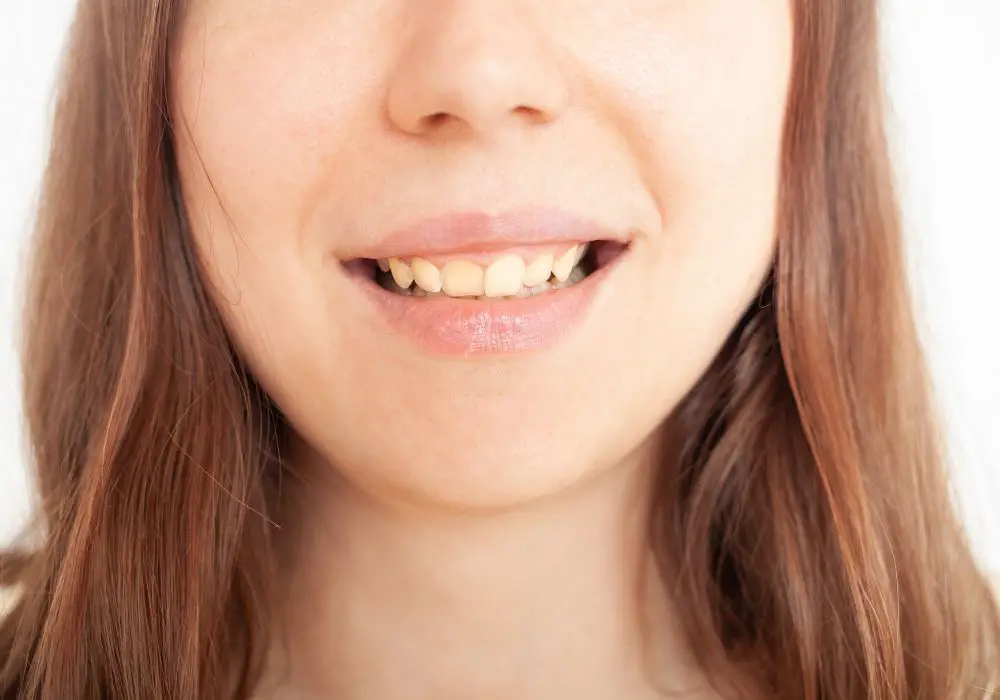
If you have iron deficiency, you may experience discoloration of your teeth. Iron deficiency can cause your teeth to appear yellow, brown, or even black. Here are some symptoms of iron deficiency related teeth discoloration:
- Yellow or brown stains on teeth: Iron deficiency can cause your teeth to develop yellow or brown stains. These stains are usually on the surface of your teeth and can be removed with a professional cleaning.
- Black stains on teeth: In rare cases, iron-containing oral solutions used for treating iron deficiency can cause black stains on teeth. This type of discoloration is more difficult to remove and may require more extensive dental treatment.
- Pale gums: Iron deficiency can cause your gums to become pale or even white. This can be a sign of anemia and should be evaluated by a healthcare professional.
If you are experiencing any of these symptoms, it is important to talk to your healthcare provider. They can help you determine if you have iron deficiency and provide treatment options to help improve your oral health.
Preventing Teeth Discoloration from Iron Deficiency
If you are experiencing iron deficiency, you may be at risk for teeth discoloration. Fortunately, there are steps you can take to prevent this from happening. Here are some tips to help you maintain healthy and bright teeth:
- Take iron supplements as directed by your healthcare provider. Iron is best absorbed on an empty stomach, but if it causes stomach upset, it can be taken with food. Be sure to follow the instructions on the label and do not exceed the recommended dosage.
- Consume foods rich in iron. Good sources of iron include red meat, poultry, seafood, beans, lentils, tofu, spinach, and fortified cereals. Eating a balanced diet can help prevent iron deficiency and keep your teeth healthy.
- Practice good oral hygiene. Brush your teeth twice a day with fluoride toothpaste and floss daily to remove plaque and prevent tooth decay. Use mouthwash to kill bacteria and freshen your breath. Visit your dentist regularly for cleanings and checkups.
- Avoid foods and drinks that can stain your teeth. Coffee, tea, red wine, and dark-colored berries can cause teeth discoloration over time. Limit your intake of these foods and drinks, or rinse your mouth with water after consuming them.
- Quit smoking. Smoking not only stains your teeth but also increases your risk of gum disease and oral cancer. If you smoke, consider quitting to improve your overall health and oral hygiene.
By following these tips, you can prevent teeth discoloration from iron deficiency and maintain healthy and bright teeth. Remember to consult your healthcare provider if you have any concerns about your iron levels or oral health.
Treatment Options for Iron Deficiency and Teeth Discoloration

If you suspect that your teeth discoloration is caused by iron deficiency, it is important to seek treatment for both conditions. Here are some treatment options that may help:
Iron Supplements
Iron supplements are a common treatment for iron deficiency. They come in various forms, including tablets, capsules, and liquids. Your doctor may recommend a specific type of iron supplement based on your individual needs. It is important to take iron supplements as directed by your doctor to avoid side effects such as stomach upset and constipation.
Iron-Rich Foods
In addition to supplements, you can increase your iron intake by eating foods that are rich in iron. Some examples of iron-rich foods include red meat, poultry, fish, beans, and leafy green vegetables. It is important to note that iron from plant-based sources may not be absorbed as well as iron from animal-based sources.
Dental Treatments
While treating the underlying cause of teeth discoloration is important, you may also want to consider dental treatments to improve the appearance of your teeth. Some options include:
- Teeth whitening: This is a simple and non-invasive treatment that can help remove surface stains from your teeth. Your dentist can perform this treatment in-office or provide you with a take-home kit.
- Dental bonding: This treatment involves applying a tooth-colored resin to your teeth to improve their appearance. It can be used to cover up stains and discoloration.
- Veneers: Veneers are thin shells that are bonded to the front of your teeth to improve their appearance. They can be used to cover up stains and discoloration, as well as other cosmetic issues such as chips and cracks.
It is important to discuss your treatment options with your doctor and dentist to determine the best course of action for your individual needs. With proper treatment, you can improve both your iron levels and the appearance of your teeth.
Frequently Asked Questions
Can low iron cause yellow teeth?
Yes, low iron levels can cause yellow teeth. When there is a deficiency of iron, the body cannot produce enough hemoglobin, which is responsible for carrying oxygen to the cells. This can lead to reduced oxygen flow to the teeth, causing them to turn yellow.
Can iron pills stain teeth?
Iron pills can cause teeth staining, especially if they are chewed instead of swallowed whole. The iron can react with the saliva in the mouth, causing a black or grayish stain on the teeth.
Can iron deficiency cause gum problems?
Yes, iron deficiency can cause gum problems. Low levels of iron can weaken the immune system, making it harder for the body to fight off infections. This can lead to gum disease, which can cause bleeding, swelling, and pain.
Can anemia cause stained teeth?
Yes, anemia can cause stained teeth. Anemia is a condition where the body does not have enough red blood cells to carry oxygen to the cells. This can cause the teeth to become discolored, especially if the anemia is severe.
Do iron stains on baby teeth go away?
Iron stains on baby teeth can go away on their own over time, but it may take several years. In some cases, the stains may be permanent. It is important to consult a dentist if you notice any discoloration on your child’s teeth.
Can iron deficiency cause tooth loss?
Iron deficiency can contribute to tooth loss, but it is not the only factor. Poor oral hygiene, gum disease, and other health conditions can also lead to tooth loss. It is important to maintain good oral hygiene and seek dental care regularly to prevent tooth loss.

